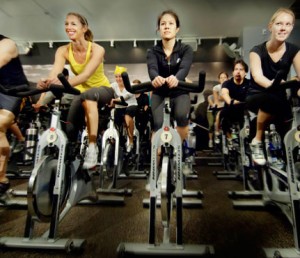
Although getting exercise on a regular basis is an important part of a healthy lifestyle, it seems that every day, we hear about a new type gym or way to get fit that could very well place you in danger.
Gym Waivers
Typically, when you join a gym, you sign a waiver and release form protecting the owner in case you suffer gym injuries. This form is a defense for the gym owner if you try to sue them for negligence in response to getting injured. These waivers are usually written very broadly to cover any possible gym injuries associated with you using the equipment and/or taking classes there. Specifically, they usually assign the risk of any injury to you, although they are sometimes missing language to that effect.
What about Unsafe Conditions?
The question remains; can the waiver cover gym injuries that arise by foreseeable dangers or unsafe conditions, such as machines that have broken, or a locker room with a slippery floor that’s just been mopped? According to the concept of premises liability, the owner of the gym must use reasonable care to keep the premises in a safe condition and warn members of known dangers, such as wet floors.
What about Common Activities Can Be Unsafe?
A lot of potentially dangerous activity can happen at a gym on a day-to-day basis. For example, what if, in a yoga class, one person tries to stand on their head, falls over, and kicks someone else in the face? Is this something that is foreseeable, for which you should assume the risk? What if someone is lifting a heavy weight, and one of the heavy weights falls off and onto your foot? Gym owners can be held liable as long as they knew or should have known that a particular person or activity posed a risk, or a history existed of the same incident happening. That is an example of what is considered to be foreseeable.
Challenging In Court
So what can you do when you are injured in a gym? How can you seek compensation for medical bills and any lost wages?
Many gyms have insurance companies, some of which will, in certain circumstances, offer to pay for certain injuries. However, there is usually a maximum limit, and it often will only cover a portion of the medical costs.
If you want to bring a claim against the gym in court, it is possible that some courts will find that the waiver was ambiguous and set it aside. In other instances, even if the waiver is legal, you can still bring a claim against the gym for gross negligence. Some of the cases that have been successful have involved:
- Faulty equipment left unrepaired;
- The failure to have certain life-saving equipment on the premises (given that they except members of all ages); and/or
- The presence of dangerous objects on the floor, such as glass, that someone injured themselves on.
Contact Our Attorneys Today
If you are injured while on property that belongs to someone else, the property owner can be held responsible if the accident was caused by his own negligence. Property owners have a legal responsibility to ensure that their premises are safe for guests, customers, clients, employees, and other visitors. Under premises liability law, victims can seek compensation for their hospital bills, lost wages, and other expenses. A personal injury accident attorney at our practice can guide you through every step of the judicial process. Contact Harrell & Nowak today for a free consultation.
